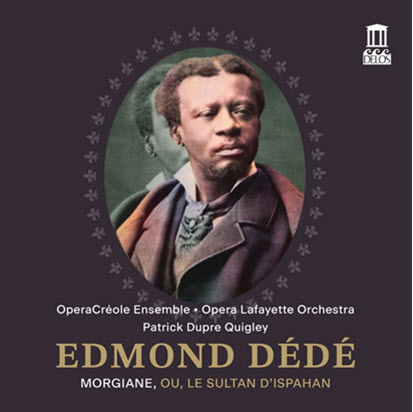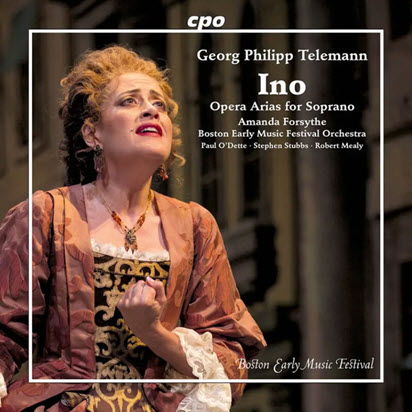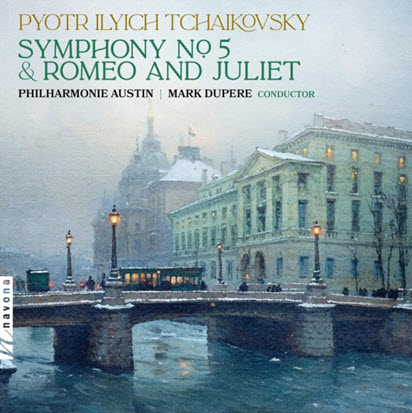by Pamela Dellal
Published May 15, 2023
The Cambridge Companion to Seventeenth-Century Opera. Edited by Jacqueline Waeber. Cambridge University Press, 2022. 385 pages.
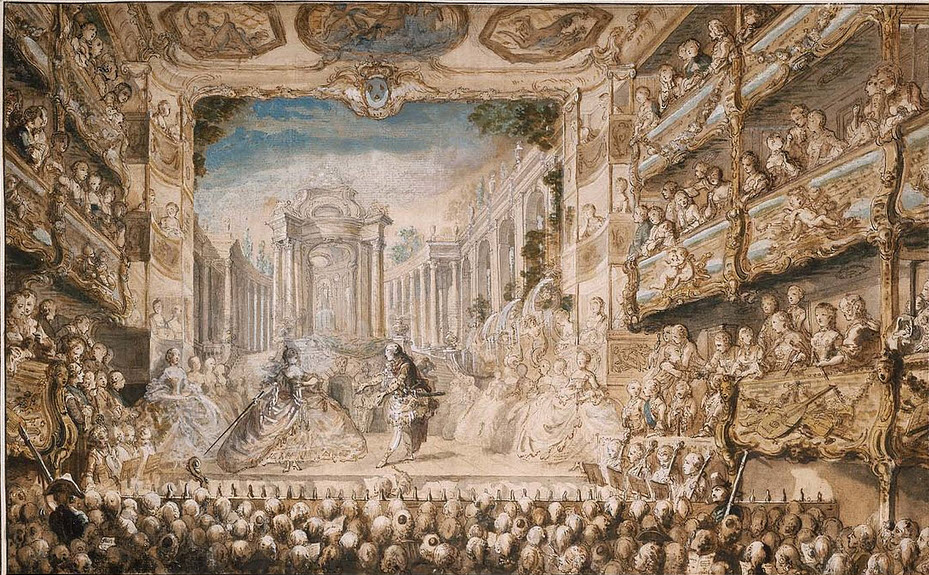
Opera is unique among music genres in having been created consciously and intentionally. Unlike other forms, which gradually evolved over decades and centuries, opera was devised as a deliberate re-creation of ancient Greek drama by a few intellectuals in late 16th-century Florence. The origins and development of opera are now traced by an impressive and valuable volume, The Cambridge Companion to Seventeenth-Century Opera.
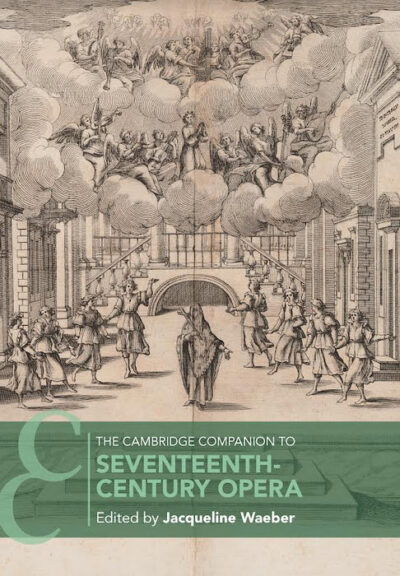 This comprehensive resource is a collection of essays written by 14 authors, some of them well known to EMA readers, including Barbara Russano Hanning, Tim Carter, Sara Elisa Stangalino, Margaret Murata, Beth L. Glixon, Colleen Reardon, Christine Jeanneret, Rebecca Harris-Warrick, Roger Savage, Laura Naudeix, Amanda Eubanks Winkler, Michael Maul, Louise K. Stein, and the editor, Jacqueline Waeber, a professor at Duke University.
This comprehensive resource is a collection of essays written by 14 authors, some of them well known to EMA readers, including Barbara Russano Hanning, Tim Carter, Sara Elisa Stangalino, Margaret Murata, Beth L. Glixon, Colleen Reardon, Christine Jeanneret, Rebecca Harris-Warrick, Roger Savage, Laura Naudeix, Amanda Eubanks Winkler, Michael Maul, Louise K. Stein, and the editor, Jacqueline Waeber, a professor at Duke University.
As befits an art that integrates poetry, music, performance techniques, acting, and theatrical effects, it covers a great deal of ground in considering the evolution of opera from its origins at the end of the 16th century to the cusp of the 18th, when the genre experienced an additional spurt of growth and development.The book is organized into three major sections: The Italian Foundations; Society, Institutions, and Production; and National Traditions (outside Italy). Since each essay is written by a different scholar, the book does not have an overall unity of tone or focus; it is likely to be most useful as a reference on individual subjects rather than as an organic work to be read straight through.
Certain rich topics, such as Venetian opera, the operas of Lully, and the rise of public opera performances, reappear in several chapters and are described with varying degrees of historical detail—an inevitable result of the book’s design. Meanwhile, there are no separate chapters on the great masterpieces of Monteverdi, Cavalli, or Alessandro Scarlatti, for example, and other significant events in the history of opera are hard to find or are touched on only in passing. The positive features of such a collection are the strengths of essays focusing on art forms that became integral to opera such as the librettists’ work, the rise of the star performer, and the development of dance and stagecraft and their contributions to the popularity of the form.
While a significant proportion of the book is devoted to the beginnings of opera in Florence, and nearly a third concentrates on the rise of the French tragédie en musique, this book is also uniquely valuable in presenting histories of 17th-century opera in England, Germany, and the territories governed by Spain (including those in the Western Hemisphere). In these essays we learn fascinating and little-known facts about works rarely mentioned elsewhere and unknown to the opera-loving public, partially due to incomplete sources or inadequate preservation. An opera lover will also appreciate the cogent breakdown of the librettist’s art and a thorough presentation of poetic and metrical devices used in Italian and French. The contribution of the poet to the structure of the music has rarely been so clearly explained.
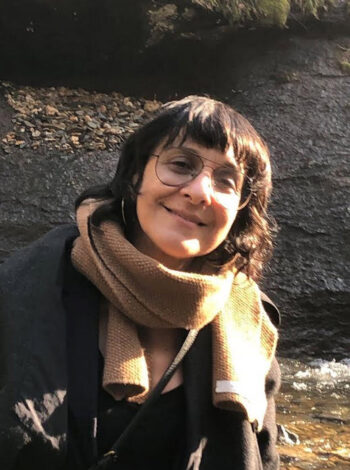
In a section on national traditions, the authors ask a significant question in more than one essay: whether a piece needs to be fully sung in order to be considered “opera.” The competing traditions of spoken drama in France, England, Germany, and Spain held sway for much of the 17th century, and produced theatrical works that were siblings of Italian operas but included passages of spoken dialogue (e.g., the English masque, the German Singspiel, etc.). The public’s concern over the lack of verisimilitude in fully sung opera also drove a hybrid solution, where magical or divine characters could communicate through song but mortal figures only through speech. To their credit, the book’s authors dispense with niggling distinctions, and treat these works as belonging to the opera genre, while accommodating the cultures and preferences of their native populations.
The book includes a very helpful chronology, which ties together the major milestones of operatic history and while placing works and artists in context. A similarly comprehensive glossary would have been useful, particularly considering some terms that seem to be used in opposing ways by various authors (e.g., entrance and exit arias, and free verse). Since the book does not purport to present a unified vision of opera’s history in the 17th century, a compilation of terminology (and some editorial oversight of usage in the individual chapters) would have provided more unity to the material. That criticism aside, The Cambridge Companion to Seventeenth-Century Opera is an invaluable resource for scholars, students, performers, and opera-lovers, and reveals a treasure trove of great music from opera’s adolescence.
A Boston-based singer whose career spans four continents and a repertoire of eight centuries, Pamela Dellal teaches voice, historical performance, and diction at the Longy School of Music of Bard College and at the Boston Conservatory at Berklee. She is also known for her work as translator of the complete sacred works of J.S. Bach and vocal works of C.P.E. Bach, the latter for the complete edition of the composer’s compositions published by the Packard Humanities Institute.

